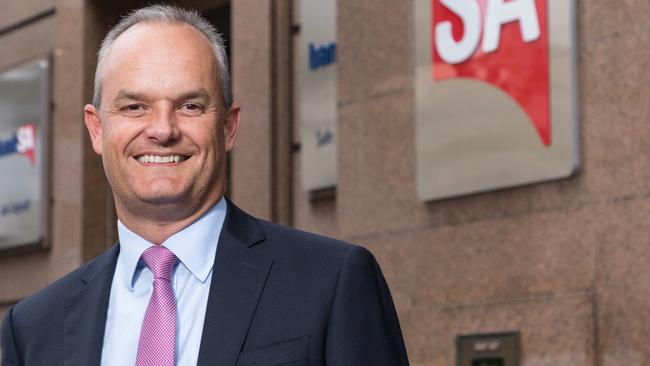South Australian consumer confidence has hit a record low as global uncertainty rocks the boat, BankSA’s State Monitor says
Big picture issues are making us wary, with South Australian consumer confidence taking a big hit.
SA Business
Don't miss out on the headlines from SA Business. Followed categories will be added to My News.
- SA stock watch: Codan has the midas touch
- How to get the most out of your Advertiser digital subscription
PETROL prices, unemployment figures and general global uncertainty have South Australian consumers rattled, with confidence dropping to the lowest level on record, the latest BankSA State Monitor survey shows.
Consumer confidence in SA dropped by 8.6 points between July and October this year, from 103.8 points to 95.2. Business confidence had its biggest dip since May 2014 but remained positive, with a reading of 105.2 where 100 is neutral.
BankSA chief executive Nick Reade said issues such as US President Donald Trump’s trade war with China, Brexit and uncertainty about the strength of the economy at home all played into the dip in consumer outlook.
“We were a little bit surprised with the results,” he said. “I was expecting the result to come down but perhaps not quite so much. My overarching feeling is that the macro issues are dominating – the global issues, the sentiment from Trump and Brexit and interest rates. With interest rates at all-time lows, normally you’d be shouting from the rooftops ‘how good is this?’. But people are getting worried about ‘what does this all mean?’”
Mr Reade said the debate at the state level over changes to land tax did not rate highly in the survey results. Businesses were more upbeat, despite the sharp drop in confidence, and there was a slight rise of 4 per cent in businesses intending to hire new staff. The cost of petrol was the No.1 issue for businesses and consumers.

Mr Reade said that was not surprising because the survey coincided with troubles in the Middle East. The employment outlook and wages relative to the cost of living rounded out the top three issues for consumers, while world affairs and media reporting on the economy had businesses concerned.
“It appears that recent tax and interest rate cuts have been outweighed by consumer concerns about the economy and their own financial position and employment prospects,’’ Mr Reade said.
He backed calls that the Federal Government should consider measures other than interest-rate cuts to stimulate the economy.
This could involve bringing forward infrastructure spending or further income-tax relief.

